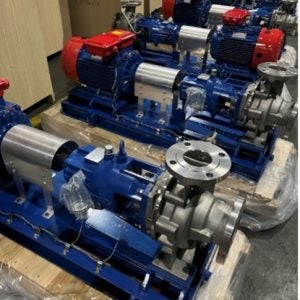 Italy’s Enel and Ansaldo Nucleare have signed a collaboration agreement to examine and evaluate new technologies and business models for the generation of nuclear energy, including small modular reactors (SMRs) and advanced modular reactors (AMRs), and their industrial applicability.
Italy’s Enel and Ansaldo Nucleare have signed a collaboration agreement to examine and evaluate new technologies and business models for the generation of nuclear energy, including small modular reactors (SMRs) and advanced modular reactors (AMRs), and their industrial applicability.
The partnership will explore the prospects of these technologies, focusing on their prospects from an industrial point of view. They will assess the degree of maturity of the new SMR and AMR reactors and related operational areas. Under the agreement, the two companies “will build a common path in which the analysis, monitoring and possible evaluation of joint initiatives contribute to verifying the effective applicability of the two technologies, with special focus on the involvement of the Italian supply chain”.
Enel and Ansaldo Nucleare, which have been operating outside Italy in the nuclear sector for several years, are both part of Italy’s National Platform for Sustainable Nuclear Power (PNNS – Piattaforma Nazionale per un Nucleare Sostenibile) established by the Ministry of the Environment & Energy Security in 2023 to study a national strategy to define a time frame for the possible resumption of nuclear energy and identify opportunities for the supply chain already operating in the sector. The platform aims It is expected to develop guidelines by mid-2024.
The Enel Group has consolidated experience in the nuclear sector, both for the management of plants through its subsidiary, Endesa, in Spain, and for construction, through participation in Slovenské Elektrárne in Slovakia. Ansaldo Nucleare (part of Ansaldo Energia) has been operating for over 60 years as an industrial integrator of complex nuclear plants and an innovator in the field of research for future nuclear technologies including SMRs and lead-cooled Generation IV fast reactors lead (LFR).
Italy previously operated four nuclear power plants but decided to phase out nuclear power in a referendum following the 1986 Chernobyl accident. The last two operating plants, Caorso and Trino Vercellese, were closed in 1990.After the 2011 Fukushima Daiichi accident, the Italian government approved a moratorium of at least one year on construction of NPPs following a referendum.
However, a poll in 2021 showed that one-third of Italians were in favour of reconsidering the use of nuclear energy including advanced technologies. In May 2023, the Italian Parliament approved a motion urging the government to consider incorporating nuclear into Italy’s energy mix and the PNNS was set up the following September.






